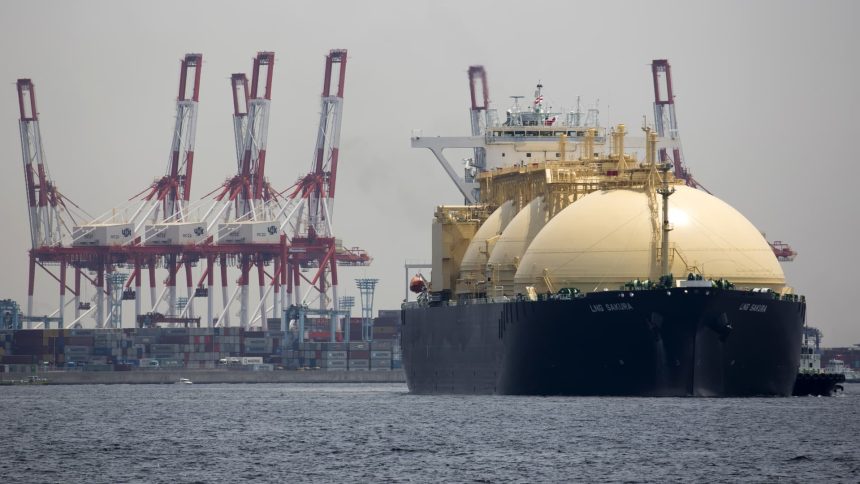Natural gas prices have plunged as the world grapples with an oversupply after a warmer-than-expected winter.
The recent heyday in liquefied natural gas boosted prices and profits, spurring a wave of investment in the sector. Over 150 million tonnes per annum worth of LNG capacity is currently under construction, marking a “record wave of expansion,” Morgan Stanley said in a recent note. For a market that currently stands at over 400 mtpa, this represents a “significant supply growth.”
“We expect gas market oversupply to reach multi-decade highs over the coming years,” Morgan Stanley’s commodity strategists said.
Natural gas prices currently stand at $1.83 per MMBtu (metric million British thermal unit), down about 22% so far this year.
A warmer-than-normal winter has dampened demand for heating and consequently gas in key LNG consuming countries.
Prices of natural gas year-to-date
What does it mean for different countries?
“Countries in Europe will definitely benefit the most from these low prices,” said Chong.
Following Russia’s supply curtailment, Europe’s LNG imports expanded to 35% of its total gas supply mix, the bulk of which is purchased on a spot price basis. Hence, the lower prices are helpful in keeping fuel imports affordable.
Other key beneficiaries include India and Southeast Asia, said Morgan Stanley. Lower LNG prices benefit India and Thailand the most as imported gas constitutes 30% to 50% of their energy supplies. India’s gas demand is among the most elastic, meaning consumers would buy more as prices fall. Thailand is one of the top gas consumers per capital among emerging market economies.
While ample LNG storage capacity globally underscore bearish fundamentals for prices, Rystad Energy’s senior analyst Lu Ming Pang said demand could pick up as second-tier and emerging players like China are lured back into the market by low prices.
“All these factors seem to point to a price floor,” said Chong.
Read the full article here




